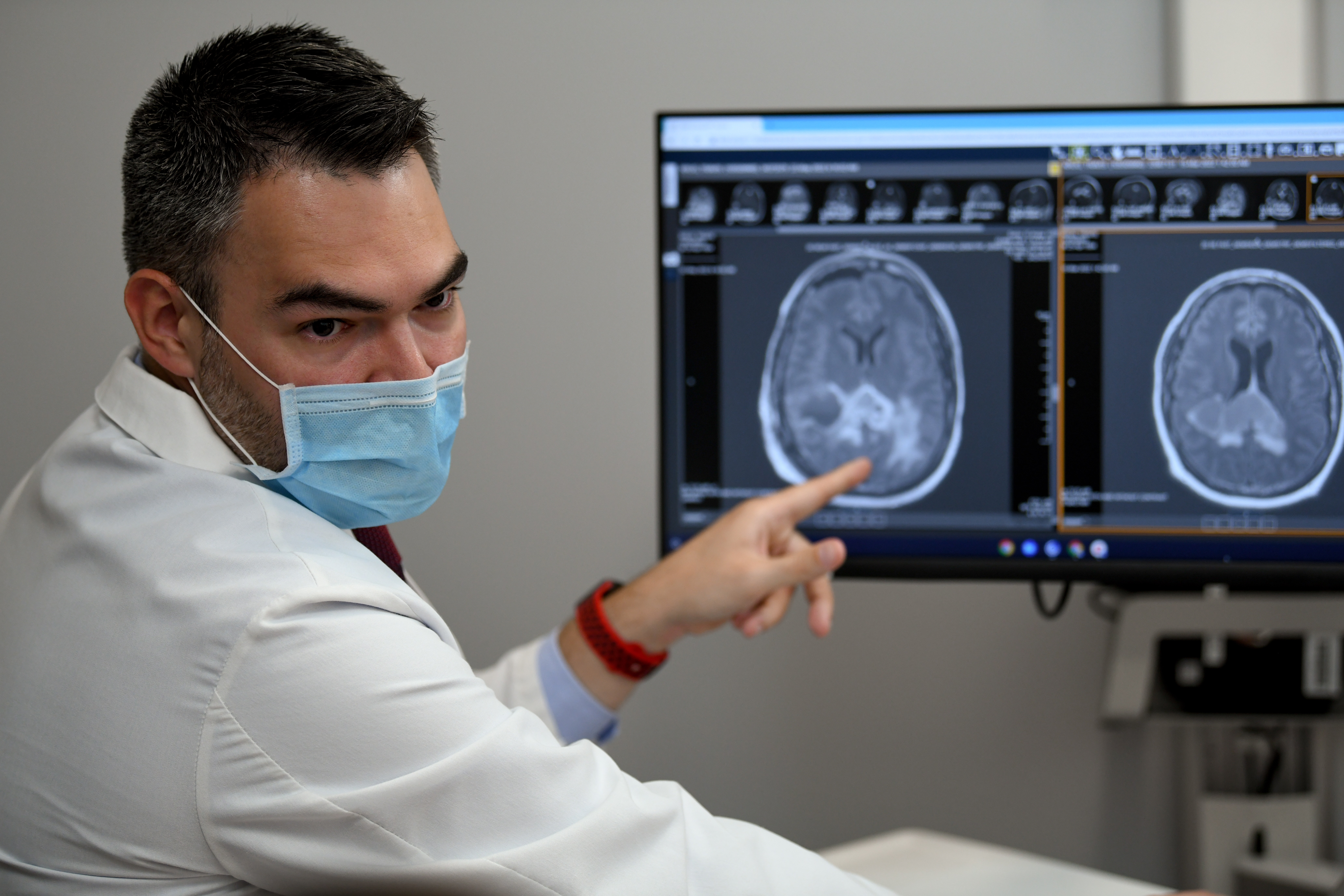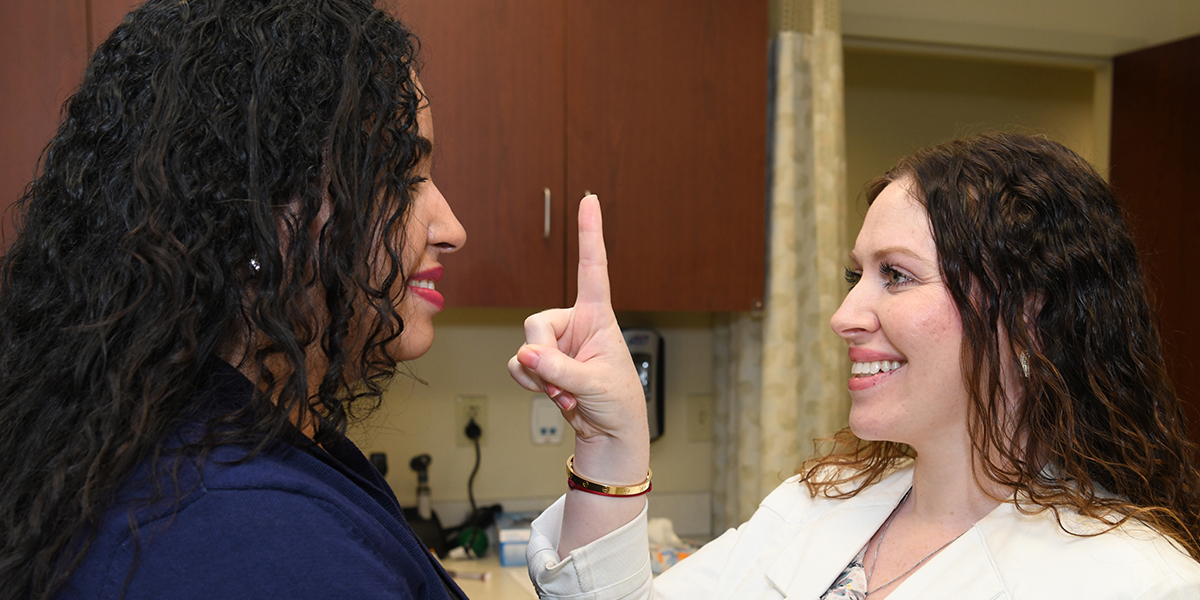Headache and Migraine Treatment in New Jersey
Headaches are a common complaint in our daily lives. Yet, “common” does not necessarily make them “simple.” While a headache can be a result of a non-emergency condition like allergies and sinusitis, the truth is that headaches can be a significant health concern. There are more patients with headaches than any other neurological issue – including stroke. Further, many of these headaches can be debilitating.
At Hackensack Meridian Neuroscience Institute, our neurology team offers expert diagnosis and coordinated care for all types of headaches and facial pain. We specialize in treating refractory migraine headaches that do not respond to conventional therapies, offering the latest treatment options to restore optimal daily functioning and quality of life for patients across New Jersey.
Headache and Migraine Care Locations
- Hackensack University Medical Center
- JFK University Medical Center
- Jersey Shore University Medical Center
Headache and Migraine-Related Conditions We Treat
- Cervicogenic headaches
- Chronic daily headaches
- Cluster headaches
- Concussion-related headaches
- Migraine headaches
- New daily persistent headaches
- Tension headaches
- Facial pain
- Trigeminal autonomic cephalalgias
- Trigeminal neuralgia
Diagnosing Conditions Causing Chronic Headaches and Migraines
The most effective care starts with an accurate diagnosis. Our program uses several diagnostics, including:
- Blood or Urine Tests: Blood and urine tests look for a variety of medical conditions that could cause headache.
- Lumbar Puncture (Spinal Tap): A spinal tap is a procedure that involves taking a small sample of cerebrospinal fluid so it can be examined for abnormalities.
- Neuroimaging: We offer a full range of neuroimaging tests at multiple New Jersey locations that can identify the cause of headaches, including X-rays and magnetic resonance imaging (MRI) and computed tomography (CT) scans.
- Sleep Evaluation: If we suspect that your headaches are related to sleep issues, we may recommend a sleep study available through our New Jersey sleep medicine centers.
Treatment for Headaches and Migraines
We work closely with you to develop a personalized treatment plan that addresses your specific needs and helps you achieve long-term headache control. Our team is committed to providing you with the most advanced and effective treatments available throughout New Jersey. We offer a comprehensive approach to headache management such as:Frequently Asked Headache and Migraine Questions
Headache and Migraine Research
Our neurologists routinely participate in headache and migraine research and provide our patients with access to the latest evidence-based therapies and the most promising clinical trials.Mental Health Support for People with Chronic Headaches
There is a strong connection between chronic headache and mood. Having bad headaches may make you feel sad or worried. And feeling sad or anxious can contribute to a headache. Our counseling psychologists can help you learn how to cope with your headaches and take control of your life. With your psychologist, you can improve the way that you:- Adhere to medications, which is very important in the treatment of headache
- Participate in pleasurable activities, with the goal of preventing headaches from controlling your life
- Strive to improve your sleep patterns, your diet, and other aspects of healthy living
Using an integrative approach, your headache physician and psychologist will work together to treat your headaches both physically and psychologically. Often you can see your headache physician and psychologist on the same day, avoiding multiple appointments in different locations through our network of New Jersey neuroscience centers.
Accurate diagnosis is the first step to effective care. In New Jersey, headache specialists may recommend:
- Blood or urine tests to check for conditions that can cause headaches
- Lumbar puncture (spinal tap) to examine cerebrospinal fluid
- Neuroimaging, including X-rays, MRI, or CT scans, to identify causes of headache
- Sleep evaluation if headaches are related to sleep issues
- Cervicogenic headaches
- Chronic daily headaches
- Cluster headaches
- Concussion-related headaches
- Migraine headaches
- New daily persistent headaches
- Tension headaches
They also provide care for facial pain and conditions such as trigeminal neuralgia and trigeminal autonomic cephalalgias.
Specialists in New Jersey offer a comprehensive range of treatments to manage headaches and migraines, including:
- Lifestyle changes like regular exercise, a balanced diet, and stress reduction
- Medications, including the first FDA-approved intravenous migraine prevention treatment
- Neuromodulation, which uses noninvasive electrical or magnetic devices
- Pain management techniques, such as nerve blocks or Botox injections
- Physical therapy, psychological counseling, and rehabilitation when needed
You can find headache and migraine care at several Hackensack Meridian Neuroscience Institute locations across New Jersey, including:
- Hackensack University Medical Center in Hackensack
- JFK University Medical Center in Edison
- Jersey Shore University Medical Center in Neptune
Each location provides advanced diagnostic testing and personalized treatment options to help manage chronic headaches and migraines.












